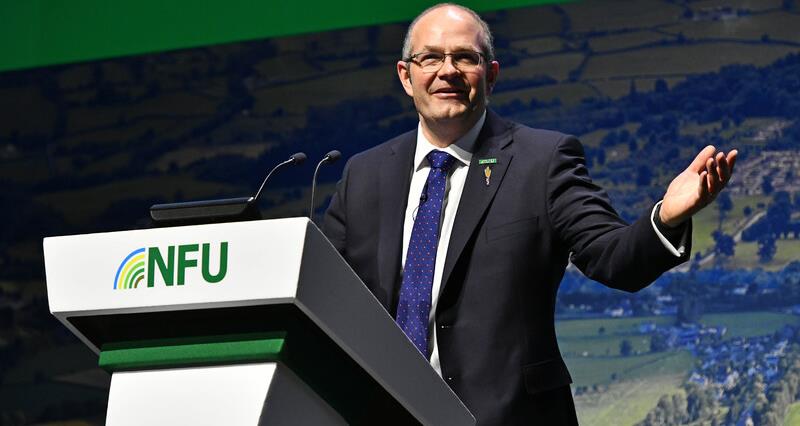I am a potato grower in Pembrokeshire, farming on 140 hectares on West Orielton farm. We grow 20% of our potatoes on our own land, with the remaining grown through one-year agreements with neighbouring farms.
We have a grazier who looks after a herd of single suckler beef cattle, who are fed only grass and silage.
Reducing carbon emissions
We have introduced cover crops during the autumn and planted pollen mixes on difficult, low-yielding patches of headland. We were initially encouraged to introduce these measures by Puffin Produce and Tesco, who provided subsidised seed mixes.
We have also been supported in undertaking carbon footprinting for a number of years. While these are an extra cost to the business, they have been well worth it for the impact they have had.
Planting cover crops has ensured we have green cover over the winter.
It helps to protect the soil, prevents water runoff, improves the biodiversity of overwintering species and the vetches fix nitrogen.
We have found that the soil is easier to work in the spring, and that the crops appear more resilient in cases of heavy rainfall and drought.
It has also been a joy to see the increase in biodiversity attracted by the pollen mixes – it always makes me smile to see the sunflowers covered in bees.

It is great having a lovely crop in the productive part of the field and boosting nature in the non-commercial part.
'Leap of faith'
To improve carbon storage on farm, we have moved to only cutting our hedgerows every other year. It took a while to get used to it not always looking neat and tidy, but saving money and helping the environment has overcome that level of pride. We have also invested in renewable energy, with solar photovoltaic cells installed on our three cottages and some farm buildings.
While it took an initial leap of faith to get the chequebook out, making these changes has not only helped us to build business resilience, it has also helped build my personal resilience.
I get to produce high quality food while having a good story to tell about the environment.
My main piece of advice for anyone thinking of implementing new climate friendly-farming practices is to not be afraid of starting small and beginning with the easiest things you can do – try one or two fields at first to help build confidence and use as learning experiences.
Going forward I am keen to get more people thinking and doing by talking about my experiences.
Improve your business resilience
Many of the climate-friendly actions that Walter has taken to improve his GHG (greenhouse gas) footprint and business resilience can be found in the NFU Horticulture and Potatoes Resilience Plan.
Climate-friendly farming is good for business; it can help members achieve better market access, cost reductions, business resilience and consumer approval, alongside reducing greenhouse gas emissions.
The Resilience Plans set out in one place what could be achieved based on what we are asking the government to do for farmers and growers.
Each sector is defining its own priorities, highlighting the member benefits and associated challenges, alongside the support needed from the government, industry and research and development in order to increase uptake of climate-friendly farming.




